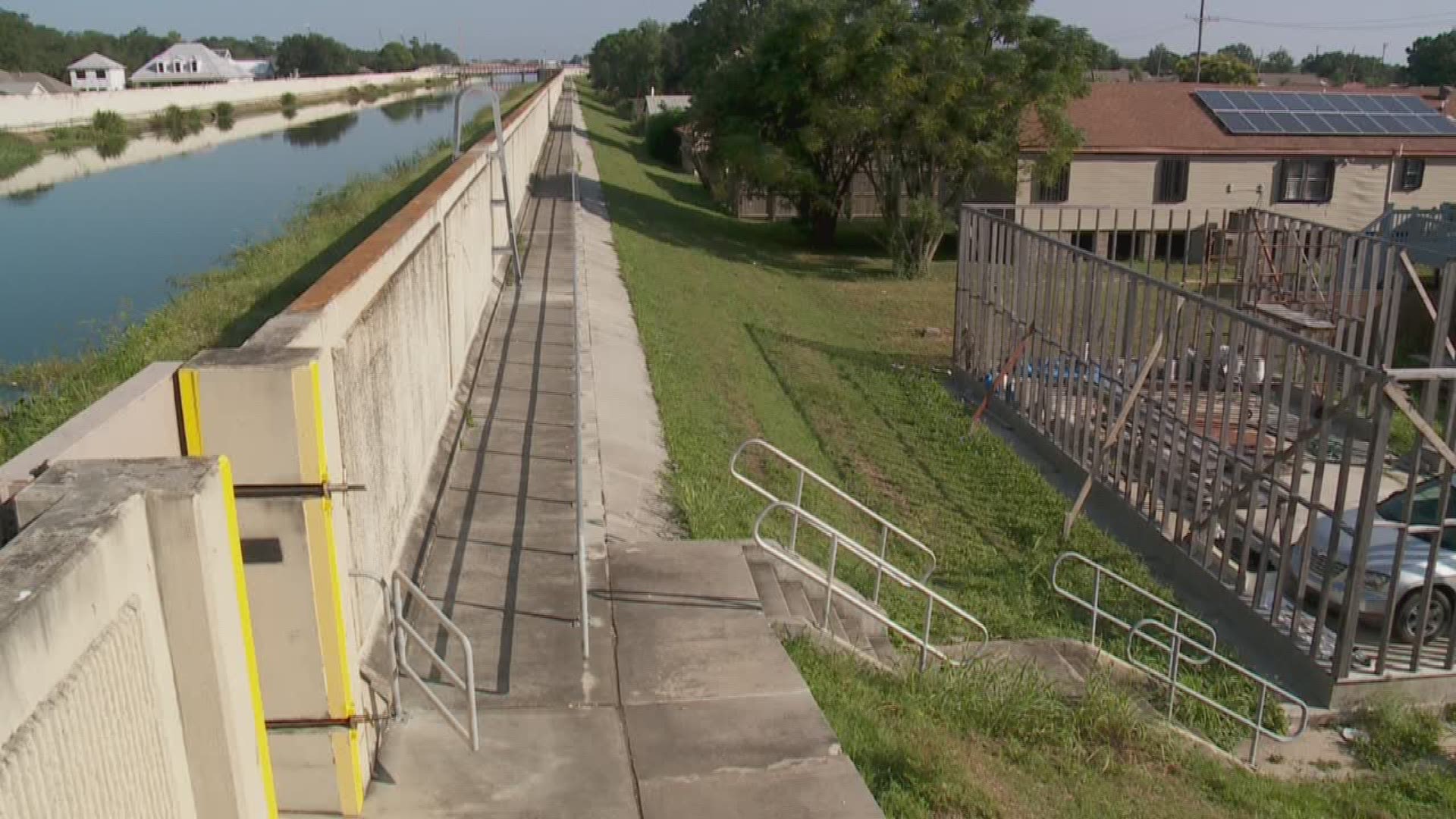NEW ORLEANS -- After Hurricane Katrina, homeowners on one canal complained when the government cut down their trees, removed their fences and essentially seized private land to strengthen flood-protection levees.
Homeowners on another canal didn’t complain.
Guess which group got paid.
Property owners on Bellaire Drive along the 17th Street Canal sued the Orleans Levee District and won a $425,000 settlement last year, according to court records. Six property owners got $70,833 each for the government claiming access to the back of their lots, and lead plaintiff Roy Arrigo said he’s happy to have been made whole.
But three miles to the east, along the London Avenue Canal, there are dozens of similarly situated property owners who have gotten nothing. They also had to give up trees, gardens, fences and sheds that sat within six-feet of the toe of the levee, but they didn’t question the authorities in court.
“They wanted to comply, they wanted to work with the government, not knowing that their rights were being violated,” said Bobbie Mason, an attorney representing some homeowners along the London Avenue Canal in a new lawsuit against the state of Louisiana.
Ever since details of the 17th Street Canal settlement were leaked to homeowners on the London Avenue Canal side of Pratt and Warrington drives in Gentilly, those residents who once complied with the Orleans Levee District have grown angry.
Ronald Collor was proud of the treehouse he built for his kids when he came back to Warrington Drive after Hurricane Katrina. Then the Army Corps of Engineers, using the Orleans Levee District’s servitude, chopped it down.
“The city was in shambles, so I came back to help my city, and this is what my city gave me,” Collor said.
It’s a familiar story for neighbors along the London Avenue Canal levee in Gentilly.
“I needed the tree because I was trying to do bromeliads and they need shade,” said Gwendolyn Bierria, another Warrington Drive resident. “They cut the tree down. The tree, the levee breach, the pictures of our kids and family… just add on to your pain.”
For decades, a state law prohibited landowners from developing property within six feet of the toe of a government levee. That was expanded to 15 feet in 2011.
But Alfred Vance said he’s watched that levee toe move closer and closer to his property line over the years until the post-Katrina improvements brought it right up on the fence along the back of his property. So they used the 6-foot servitude to tear down the fence and chop down three majestic oak trees, then forced him to leave his property open in the back, susceptible to theft and levee joyriders who cut across his land on ATVs and bikes.
And all the while, he and the rest of the London Avenue Canal neighbors are still charged taxes on the full size of their property, the same size tract of land reflected on their 2005 tax bills.
“I’m losing over 500 square feet of land, so I thought my tax would change because of that, but it hasn’t changed,” Vance said.
That's just one reason why Arrigo, the force behind the 17th Street Canal lawsuit, is in favor of the London Avenue Canal neighbors’ push for a similar deal as he and others on Bellaire Drive received.
“They should have the same rights that we have and that we exercised, to make a claim,” Arrigo said.
“I didn’t realize that other people were being compensated. That’s when the light went on,” Vance said.
But that light may have gone on too late for the London Avenue Canal property owners. Bobbie Mason is a lawyer representing some of them in a lawsuit seeking class-action status. She acknowledged the statute of limitations may have run out on them suing the Orleans Levee District. So, instead, they’re suing the state over a recent change in the longstanding law that prohibits obstructions near the levees.
Mason says 2015 legislation added “new taking language” to the law, specifically related to the 17th Street Canal, Orleans Avenue Canal and London Avenue Canal, the three outfall canals in Orleans Parish.
But Arrigo said he helped write that legislation and the only change in the law actually dialed back the amount of land the government could seize on the three New Orleans drainage canals, cutting it back down from 15 feet to 6 feet.
Mason and her law partners feel that because the law mentions London Avenue by name for the first time, it’s the first time the servitude was officially claimed by the state. The Orleans Levee District says the power has always been there for any government levee along a waterway but notes that it isn’t involved in this most recent lawsuit.
The Attorney General’s Office would be in charge of defending the state in the lawsuit, but spokeswoman Ruth Wisher said they are still reviewing the case.

